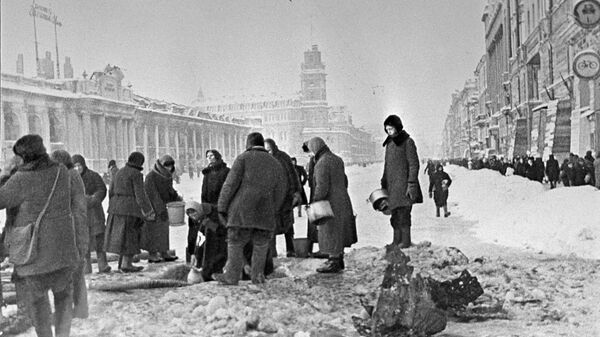Two months after the invasion of the Soviet Union begun, the Nazi German forces aided by their Finnish allies managed to cut off all supply routes to Leningrad, marking the beginning of probably the darkest period of time in the city’s history – the Leningrad Blockade.
With the largest part of the city’s food stores destroyed when Nazi warplanes bombed the Badajevski General Store, the situation seemed hopeless. People were dying of hunger on a daily basis, with survivors literally living on scraps: a soldier’s daily ration was 500 grams of bread, a worker had to make do with 250 grams, and ordinary citizens were allotted only 125 grams of this foodstuff which partially (up to 50 percent) consisted of inedible substances.
The Nazis thought that the fate of the city was sealed. They thought that no city could possibly endure a siege like that.
Leningrad's defenders had other ideas.
Despite the horrendous pressure, both physical and mental, the city and its people endured against all odds.
Children were working alongside the adults, helping to convert basements into bomb shelters.
Artists and musicians did their best to lift the people’s spirits; the most famous performance was probably the Leningrad première of Shostakovich's Symphony No. 7, performed by the starving musicians and broadcast to the German lines, dealing a serious blow to the enemy morale.
Even though the people of Leningrad were dying, they never thought to surrender.
In January 1943 the Red Army managed to make a dent in the city’s blockade, but the siege was only fully lifted a year later when the Nazis were pushed 60 kilometers away from the city.
On January 27, 1944 the city residents were finally able to celebrate the end of the blockade, as well as their victory over the enemy who failed to break their will.




